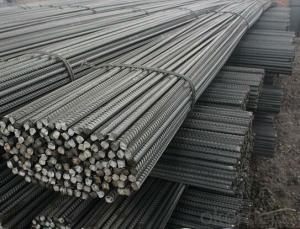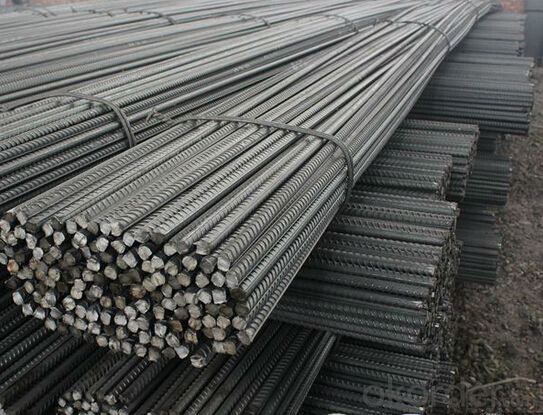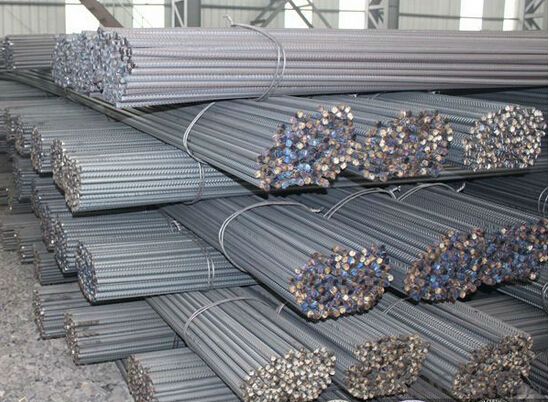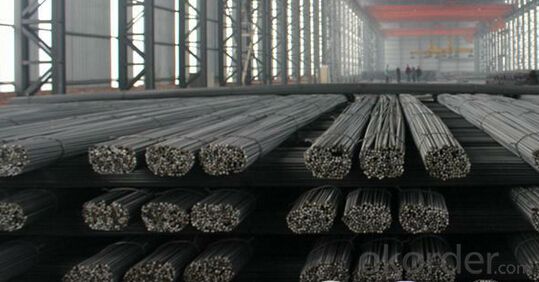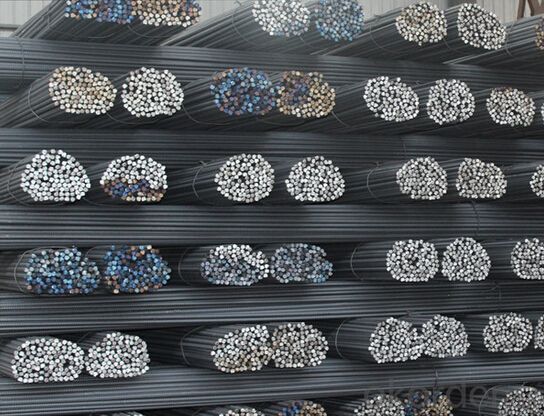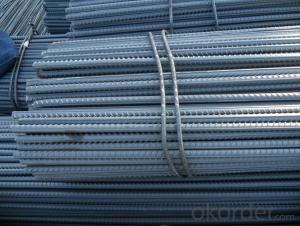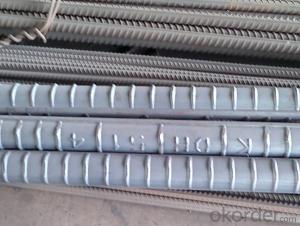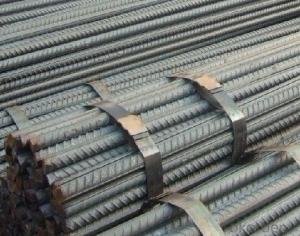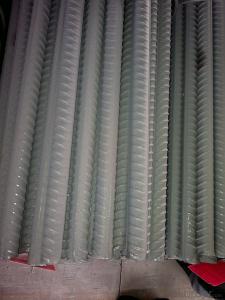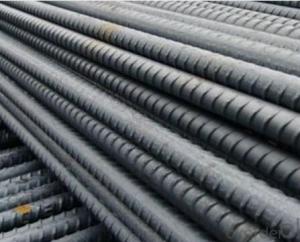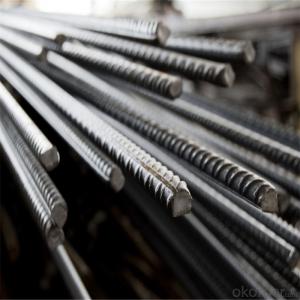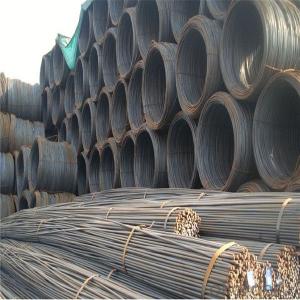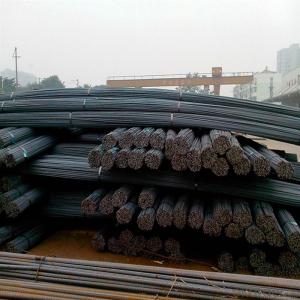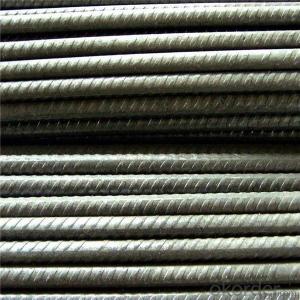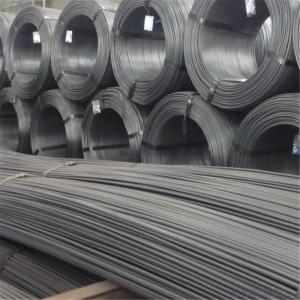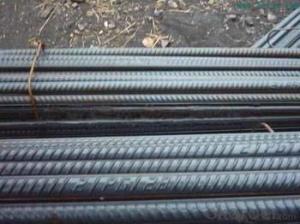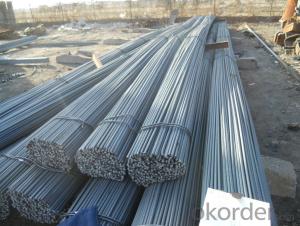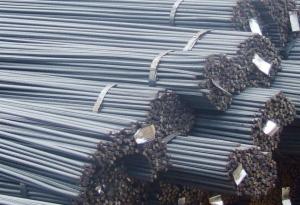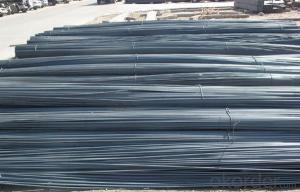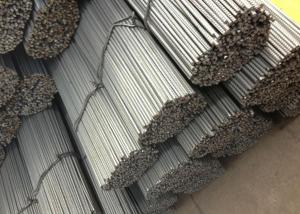Prime Oman Steel Rebar for Building Construction
- Loading Port:
- Tianjin
- Payment Terms:
- TT OR LC
- Min Order Qty:
- 100 m.t.
- Supply Capability:
- 10000 m.t./month
OKorder Service Pledge
Quality Product, Order Online Tracking, Timely Delivery
OKorder Financial Service
Credit Rating, Credit Services, Credit Purchasing
You Might Also Like
Specification
Standard:
AISI,ASTM,JIS,GB,BS,DIN,API,EN
Technique:
Hot Rolled,Cold Rolled,Cold Drawn,ERW,Forged,Saw,Extruded,EFW,Spring
Shape:
U Channel,Square,C Channel,Hexagonal,Round,Rectangular,Oval,LTZ
Surface Treatment:
Galvanized,Coated,Copper Coated,Color Coated,Oiled,Dry,Chromed Passivation,Polished,Bright,Black,PVDF Coated
Steel Grade:
Q195,Q215,Q235,Q215B,Q235B,RHB335,HRB400,200 Series,300 Series,400 Series,600 Series,SS400-SS490,10#,20#,A53(A,B)
Certification:
ISO,SGS,BV,IBR,RoHS,CE,API,BSI,UL
Thickness:
6-34mm
Width:
6-34mm
Length:
12m
Outer Diameter:
6-34mm
Net Weight:
10kg
Packaging:
seaworthy packaging
Prime Oman Steel Rebar for Building Construction
Details of the Prime Oman Steel Rebar for Building Construction
| Standard & Grade: | GB1499-98 : HRB335,HRB400,HRB500 |
| BS4449-1997 : GR460,GR500 | |
| CAN/CSA-G30.18-M92 : 400W | |
| ASTM A615 : Gr.40, Gr.60 | |
| Diameter: | 6mm;8mm;10mm;12mm;14mm;16mm;18mm;20mm;22mm;25mm;28mm;30mm;32mm;35mm;40mm |
| Length: | 6m,9m,12m |
| Packing: | Bundle packing |
| Origin: | China |
| Application: | Construction,Road,Machinery processing,Welding fields. |
| Delivery time: | 10-25 days |
| Shipment: | By bulk vessel or Container |
| Documents: | Mill Test Certificate,Commercial Invoice,Packing List,Certificate of Origin |
Company Introduction of the Prime Oman Steel Rebar for Building Construction
CNBM International Corporation is the most import and export platform of CNBM group(China National Building Material Group Corporation) ,which is a state-owned enterprise, ranked in 270th of Fortune Global 500 in 2015.
With its advantages, CNBM International are mainly concentrate on Cement, Glass, Iron and Steel, Ceramics industries and devotes herself for supplying high quality series of refractories as well as technical consultancies and logistics solution.
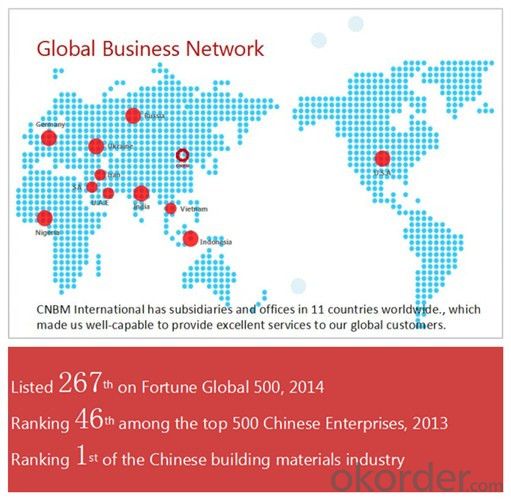
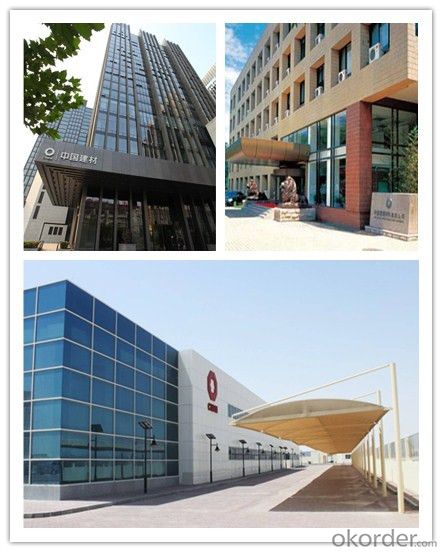
Packaging & Delivery of the Prime Oman Steel Rebar for Building Construction
| Packaging Detail | Sea worthy packing /as per customer's packing instruction |
| Delivery Detail | 15 ~ 40 days after receiving the deposit |
FAQ
| Are you a trading company or manufacturer? | Manufacturer |
| What’s the MOQ? | 1000m2 |
| What’s your delivery time? | 15-20 days after downpayment received |
| Do you Accept OEM service? | Yes |
| what’s your delivery terms? | FOB/CFR/CIF |
| What's the Payment Terms? | 30% as deposit,70% before shipment by T/T |
| Western Union acceptable for small amount. | |
| L/C acceptable for large amount. | |
| Scrow ,Paybal,Alipay are also ok | |
| Why choose us? | Chose happens because of quality, then price, We can give you both. Additionally, we can also offer professional products inquiry, products knowledge train (for agents), smooth goods delivery, excellent customer solution proposals. |
| What's your available port of Shipment? | Main Port, China |
| What’s your featured services? | Our service formula: good quality+ good price+ good service=customer's trust |
| Where are your Market? | Covering more than 160 countries in the world |
- Q: How do steel rebars help in distributing load in a structure?
- Steel rebars help in distributing load in a structure by providing reinforcement and strength to concrete. When embedded within the concrete, rebars increase its tensile strength, allowing it to better resist cracking and deformation under load. This distribution of load helps to prevent concentrated stress points and ensures a more even distribution of forces throughout the structure, increasing its overall stability and durability.
- Q: Why the longitudinal tie bar adopts screw steel bar, and the transverse transmission bar adopts light round steel bar.
- Fine grain hot-rolled steel grades in the hot rolled ribbed bar with English abbreviation "fine" English (Fine) first letter. Such as: HRBF335, HRBF400, HRBF500. There are higher requirements for the seismic structure, the applicable brand is: after the existing brand plus E (such as: HRB400E, HRBF400E).
- Q: What is the process of reinforcing concrete columns with steel rebars?
- The process of reinforcing concrete columns with steel rebars involves several steps. First, the design and layout of the rebars are determined based on the structural requirements and load calculations. Then, the concrete formwork is constructed to shape the column. Next, the rebars, typically made of high-strength steel, are placed in the formwork according to the designed layout, ensuring proper spacing and alignment. The rebars are often tied together using wire or mechanical connectors to maintain their position during the concrete pouring. Once the rebars are securely in place, concrete is poured into the formwork, encasing the rebars and forming the column. The concrete is then left to cure and harden, creating a strong and durable composite structure of concrete and steel.
- Q: What are the different methods for cutting steel rebars on-site?
- There are several methods for cutting steel rebars on-site, including the use of a manual rebar cutter, a portable electric rebar cutter, a hydraulic rebar cutter, or a gas-powered rebar cutter. Each method has its advantages and limitations, depending on the specific requirements of the project.
- Q: How do steel rebars affect the shrinkage and creep of concrete?
- Concrete's shrinkage and creep behavior can be significantly influenced by steel rebars. Shrinkage refers to the concrete's volume reduction caused by moisture loss during drying, while creep refers to its time-dependent deformation under sustained load. The inclusion of steel rebars helps mitigate concrete shrinkage. As the concrete shrinks, the rigid rebars resist this reduction and provide restraint. This restraint minimizes volume changes and reduces cracking caused by shrinkage. Moreover, the tensile strength of rebars allows them to distribute stress and prevent localized cracking, further minimizing the impact of shrinkage on overall concrete performance. Regarding creep, steel rebars can increase concrete's deformation. This is because the rebars introduce additional stress and strain, leading to greater creep deflections. However, compared to factors like mix design, water-cement ratio, and curing conditions, the effect of steel rebars on creep is generally considered minor. It's important to note that proper reinforcement layout design and detailing can minimize the impact of steel rebars on shrinkage and creep. Adequate spacing, rebars cover, and reinforcement ratios optimize both concrete and rebars' performance. Additionally, the use of supplementary cementitious materials like fly ash or silica fume can reduce shrinkage and mitigate creep's impact. In summary, steel rebars are crucial in minimizing concrete's shrinkage-related issues through restraint and stress distribution. Though they may increase creep deformation, their impact is generally minor compared to other factors. Proper reinforcement design and detailing optimize concrete and steel rebars' performance in terms of shrinkage and creep.
- Q: Can steel rebars be used in industrial flooring?
- Industrial flooring can indeed incorporate steel rebars, as they possess remarkable tensile strength and durability. The incorporation of steel rebars in concrete construction, particularly in industrial flooring, is a widespread practice. These rebars are strategically positioned within the concrete to reinforce it and provide additional strength, enabling it to withstand heavy loads and prevent cracking. By utilizing steel rebars in industrial flooring, the capacity to bear weight is significantly augmented, and the floor's longevity and structural integrity are assured. Furthermore, steel rebars can be effortlessly welded or linked together to form a grid or mesh, further enhancing the floor's strength and stability. Hence, steel rebars are a suitable choice for industrial flooring applications.
- Q: Can steel rebars be used in historical restoration projects?
- Yes, steel rebars can be used in historical restoration projects. They provide strength and durability, ensuring the structural integrity of the restored building while preserving its historical significance. However, it is essential to carefully consider and plan the placement of rebars to minimize their visual impact and maintain the authenticity of the historical structure.
- Q: Are there any limitations on the maximum length of steel rebars used in construction?
- Yes, there are limitations on the maximum length of steel rebars used in construction. The length of steel rebars is dependent on various factors such as the structural design, building codes, transportation constraints, and practical limitations. Typically, steel rebars are manufactured in standard lengths and can be extended by overlapping or splicing methods if needed. However, excessively long steel rebars may lead to handling difficulties, transportation issues, and increased risk of bending or damage. Thus, it is essential to adhere to the maximum length limitations specified by the relevant construction regulations and engineering standards.
- Q: What are the sizes available for steel rebars?
- Different construction needs can be accommodated by steel rebars, which are also known as reinforcing bars. Steel rebars are available in a range of sizes, typically from #3 to #18. Each size is assigned a corresponding number that represents the diameter of the bar in inches. For instance, a #3 rebar has a diameter of 3/8 inch, while a #18 rebar has a diameter of 2 1/4 inches. These sizes are universally standardized and widely utilized in construction projects around the world. The selection of a rebar size depends on various factors, including the structural requirements, load-bearing capacity, and specific engineering specifications of a particular project. The strength and load-bearing capacity of a rebar increase with its diameter. It should be noted that the availability of sizes may differ based on the region or country, as different standards and regulations may be followed. To determine the appropriate size of steel rebars to be used in a construction project, it is always advisable to consult local building codes and seek guidance from engineering professionals.
- Q: What is the average weight of a steel rebar?
- The average weight of a steel rebar can vary depending on its size and length. However, a common average weight for a typical steel rebar is around 0.75 pounds per foot.
Send your message to us
Prime Oman Steel Rebar for Building Construction
- Loading Port:
- Tianjin
- Payment Terms:
- TT OR LC
- Min Order Qty:
- 100 m.t.
- Supply Capability:
- 10000 m.t./month
OKorder Service Pledge
Quality Product, Order Online Tracking, Timely Delivery
OKorder Financial Service
Credit Rating, Credit Services, Credit Purchasing
Similar products
Hot products
Hot Searches
Related keywords
